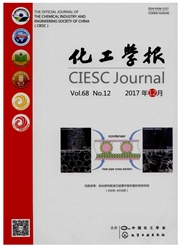

 中文摘要:
中文摘要:
2,3-丁二醇(2,3-BD)是一种重要的微生物代谢产物,广泛应用于食品、医药、化工等多个领域。微生物合成2,3-BD的效率不高一直制约着其生物制造工业化进程,应用代谢工程的理论和方法优化微生物的代谢途径有望解决这一问题。本文全面总结了近年来微生物合成2,3-BD研究过程中的菌株改造和构建技术,包括过表达合成途径中的关键酶编码基因、敲除旁路代谢途径关键酶编码基因、应用辅因子工程手段对天然菌株代谢网络进行重新设计和合理改造,以及利用合成生物学技术在模式菌株中构建全新的代谢途径,实现2,3-BD的高效生物合成。最后,本文对未来的研究方向进行了展望,提出了进一步利用先进的合成生物学方法构建高效细胞工厂的指导性建议。
 英文摘要:
英文摘要:
2,3-butanediol(2,3-BD),which is considered as an important microbial metabolite,has been widely used in many fields such as food,medicine,chemical,and so on.Microbial 2,3-BD production has a history of more than 100 years,but the low efficiency of microbial 2,3-BD accumulation has constrained its process in biological manufacturing industrialization.Optimization of microbial metabolic pathway with the theory and method of metabolic engineering is expected to solve this problem.The objective of this paper is to review the state-of-the-art strain transformation and construction strategies in microbial synthesis of 2,3-BD,including overexpressing genes encoding for key enzymes in the 2,3-BD metabolic pathway,knocking out the metabolic bypass way genes,and using the methods of cofactor engineering in redesigning and reasonable transformation of the natural strains' metabolic network.Besides that,the using of synthetic biology in constructing brand new 2,3-BD pathways in model strains,such as Escherichia coli,Saccharomyces cerevisiae and Cyanobacteria,in order to enhance the yield or chiral 2,3-BD production in microorganisms is also introduced in this review.Finally,the future research direction is prospected,and the guidelines to develop high-efficiency microbial cell factories by advanced synthetic biology methods to achieve the optimal allocation of the intracellular metabolic flow are also proposed.
 同期刊论文项目
同期刊论文项目
 同项目期刊论文
同项目期刊论文
 期刊信息
期刊信息
